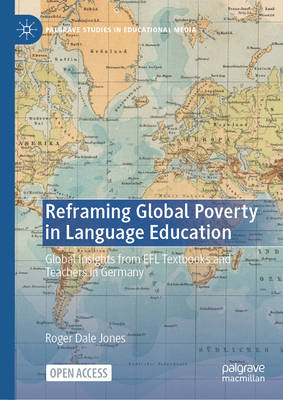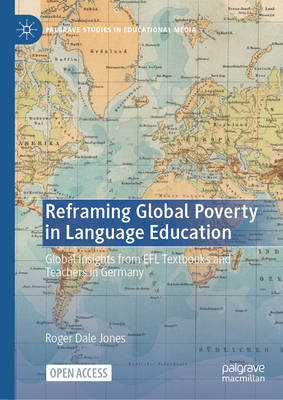
- Retrait en 2 heures
- Assortiment impressionnant
- Paiement sécurisé
- Toujours un magasin près de chez vous
- Retrait gratuit dans votre magasin Club
- 7.000.0000 titres dans notre catalogue
- Payer en toute sécurité
- Toujours un magasin près de chez vous
Reframing Global Poverty in Language Education
Global Insights from EFL Textbooks and Teachers in Germany
Roger Dale Jones
53,45 €
+ 106 points
Description
This open access book examines global poverty education in English as a Foreign Language (EFL) classrooms, with particular focus on Germany as a case study. Combining textbook analysis with teacher interviews, it uncovers dominant narratives of poverty representation and education, revealing moral and pedagogical framings that impact learning outcomes within the framework of Education for Sustainable Development and Global Citizenship Education. Beginning with an overview of international and national policy frameworks such as the Sustainable Development Goals, as well as of contemporary research and theory on Education for Sustainable Development in foreign language pedagogy, the book explores how English-language materials depict poverty through language, imagery, and intercultural narratives, as well as what educational aims they target. It problematizes these perspectives in light of contemporary research on the complex causes and solutions of global poverty, revealing tensions between educational intentions and empirical realities. Even well-meaning materials, it argues, can reproduce stereotypes, simplify global dynamics, or promote paternalistic and misleading worldviews. Drawing on insights and experiences of teachers, the study highlights the ethical and emotional challenges of addressing such issues in the classroom and calls for pedagogies that engage learners critically and empathetically. Finally, it uncovers the subtle cognitive, cultural, and moral biases that shape how poverty is framed in education, reflecting patterns that extend far beyond the classroom and carry implications for global understanding and responsibility. Integrating insights from global poverty research, foreign language didactics, sustainability studies, and critical pedagogy, Reframing Global Poverty in Language Education offers practical guidance for educators, researchers, and policymakers committed to fostering reflective and globally aware learners.
Spécifications
Parties prenantes
- Auteur(s) :
- Editeur:
Contenu
- Nombre de pages :
- 374
- Langue:
- Anglais
- Collection :
Caractéristiques
- EAN:
- 9783032139283
- Date de parution :
- 16-02-26
- Format:
- Livre relié
- Format numérique:
- Genaaid
- Dimensions :
- 148 mm x 210 mm

Seulement chez Librairie Club
+ 106 points sur votre carte client de Librairie Club
Les avis
Nous publions uniquement les avis qui respectent les conditions requises. Consultez nos conditions pour les avis.





